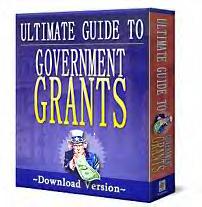Getting Your Finances Ready for a SSD Case
Financial security is what everybody wants in life; that and emotional and spiritual security. However, without the sense of being financially secure for the years to come, this has disastrous effects on a person's general well being.
Now American working class citizens have come to believe that the Social Security is an institution to protect them when the need finally arises. What do we need then is to rest a weary body and soul from the long years of hard work. Or the need to settle down again as burdening illnesses and frustrating restrictions troubled your body. The vision held for everybody – the Social Security disability (SSD) benefits program and supplemental security insurance (SSI) is something for them all to built on dreams of a secured, life after their years of hard work.
Alas, when they first applied for the Social Security Disability Benefits, very few claimants were ever told how long the process of eventually securing their claims might take. .
A sad and commonplace scenario is what occurs to these persons, employed for many years, perhaps at just one job, suddenly find that their medical condition has worsened and they can no longer do their job, or any other job. Either by their initiative or advice taken from others, they contact the social security office and file a claim for benefits. However, instead of finally being able to reap the fruits of the many years of their labors, they realize that they have to wait.
Two months in the process, they check the status of their claim and are told that "evaluation will take 90 to 120 days". Later on, after several months, they get a letter, unfortunately, denying their claims. They file an appeal and another long wait commence, only to receive another denial letter after several months upon their appeal. They would then be informed that another appeal may be processed which involves a hearing before an administrative law judge.
And of course another long wait for a hearing and even after a hearing has been held, it may take yet another innumerable weeks or even moths before a decision is made by a judge. And if ever the disability benefits are ever received at all, it had taken them 2 ½ years from the day their claiming process began. As 21/2 years had passed they may never realized that during all that time all their savings are exhausted, bills and loans are still waiting to be paid, valuables are lost in order to pay for other debts. They have been reduced to drastic living conditions and still, they still haven't taken hold of their benefits.
Learning a lesson from the situations, it is extremely important to know how long the application and appeal process of the SSD system would really take before the eventuality of being awarded by the benefits.
By having advanced knowledge of how long a social security SSI/disability application might take, claimants could plan their assets and finances and avoid instantaneous financial downfall.
Also, practical rules may apply in planning financial aspects while still in the process of applying and/or appealing for your disability claims. On top of everything else, it would be wise not to take on additional debts or obligations. Get the cooperation of your family and list down other ways which would greatly minimize financial burdens and obligations. With regards to the bills and payments that have earlier compromised you, find out a way of restructuring them so that your budget would not suffer greatly as each day passed, still without the approval of your benefits. Who knows, sacrificing but a little more is what it probably takes.
About the Author
For questions, comments and additional info about the articles visit http://www.socialsecuritylawattorney.com
2339 Warwick Dr
Oldsmar
FL 34677
United States
To stop further mailings or to change your details, click here.




